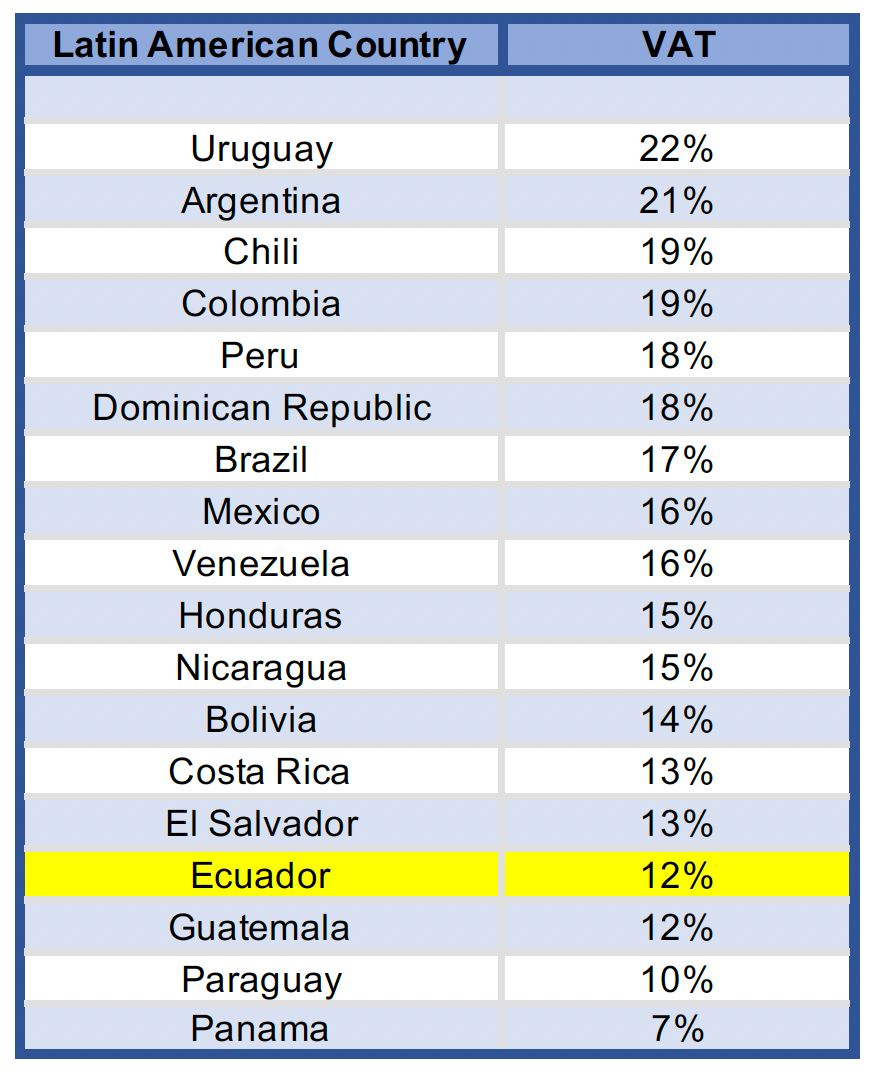In a bid to address the ongoing internal war against drug mafia gangs, President Daniel Noboa has proposed a series of measures, including a significant increase in the value-added tax (VAT) from 12% to 15%. While critics argue against breaking the initial promise of not raising taxes, experts suggest that these measures are crucial for a much-needed structural reform.
President Daniel Noboa’s recent push to raise the VAT, despite campaigning against tax increases, reflects the gravity of the fiscal situation in Ecuador. The Fiscal Policy Observatory, represented by Cordes and Augusto de la Torre, supports the move, considering it a necessary structural reform to alleviate the country’s financial woes. Despite skepticism about whether the increased VAT alone can cover all financing needs, it is seen as a step towards relieving the strained public finances.
The government has already implemented other measures to provide immediate relief. Two new laws, addressing economic and energy efficiency issues, have been swiftly approved in the Assembly. The first law includes a one-time forgiveness of interest and fines on tax debts, potentially generating capital payments between $500 million and $800 million in 2024. The second law mandates banks to pay the foreign currency outflow tax (ISD) when settling credit lines abroad. Additionally, a December decree maintained the ISD at 3.5%, contrary to an expected reduction to 2%.
Jaime Carrera, the executive secretary of the Fiscal Policy Observatory, suggests that these measures, while beneficial in the short term, may not be sustainable over time. He emphasizes the severity of the fiscal situation, stating that urgent structural reforms are essential to manage the unmanageable public accounts.
“Irresponsible” Opposition to VAT
The proposed increase in VAT has faced opposition from some Assembly benches, creating political tension. Carrera warns that rejecting the tax increase demonstrates “great blindness and irresponsibility” among politicians. He argues that, if the Assembly is committed to supporting the fight against drug mafias, they must find a way to finance it, whether through tax increases or subsidy reviews.
Critics, including certain social sectors, argue for reducing public spending or collecting debts before resorting to tax increases. Carrera acknowledges the validity of these concerns but highlights the challenge of reducing spending in essential areas like education, health, and security.
Former World Bank Chief Economist for Latin America, Augusto de la Torre, supports the VAT increase, citing reasons such as its minimal impact on exports and foreign investment. He contends that the focus should be on factors like corporate income tax, country risk, and the business environment. De la Torre sees the VAT increase as a permanent tax reform, positioning Ecuador in line with the regional average.
Analyzing VAT rates in Latin America, Ecuador’s 12% falls below the regional average of around 15%. Advocates for the increase, like the Development Corporation (Cordes), argue that raising VAT is a necessary and appropriate measure. They believe it will generate immediate resources, provide a permanent income boost, and aid in reducing financing needs.
Despite the rationale behind the VAT increase, opposition from Assembly benches raises questions about the political will to address the fiscal crisis. Cordes questions the inconsistency, pointing out that even the previous government approved a VAT increase in a less complex situation. The urgency to combat criminal groups, especially in the midst of a war against terrorism, underscores the need for a well-funded state.
While the VAT increase may not be a standalone solution, experts like Cordes emphasize the importance of complementing it with targeted subsidy adjustments. The looming fiscal deficit of $5.5 billion requires a comprehensive approach to secure Ecuador’s economic stability.
In this critical juncture, the government’s ability to efficiently utilize the increased resources becomes crucial. As Ecuador navigates these challenging fiscal waters, President Daniel Noboa’s leadership faces scrutiny, and the nation watches closely to see if these measures will indeed bring the desired relief.


I believe a non-refund of the Vat tax and evaluation of property tax will improve the economy, along with many of the private drivers who take business away from the public transit systems and taxi drivers, who do pay taxes.
People aren’t getting VAT refunds, and you think that’s a good idea?
”VAT refunds to seniors delayed…
The government acknowledges it owes senior citizens millions of dollars in VAT refunds but says it is not sure when it will be able to pay.
According to the Internal Revenue Services (SRI), no refunds have been made since August due to a lack of money. In addition to those over 65, people with disabilities are also waiting for refunds.”
https://cuencahighlife.com/as-tourism-rebounds-crimes-against-tourists-drop-noboa-agrees-with-u-s-ambassadors-money-laundering-claim-vat-refunds-to-seniors-delayed/